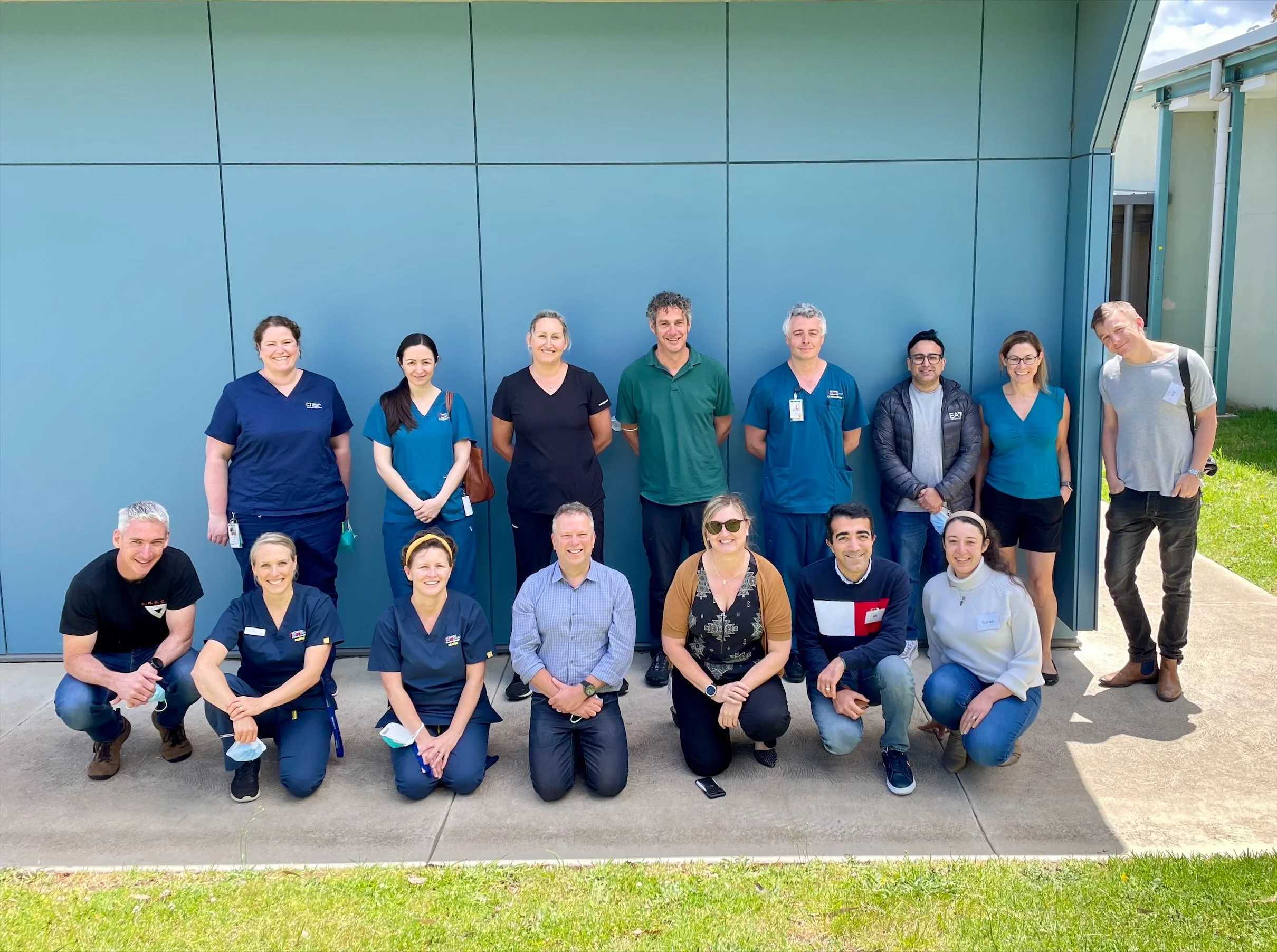Why ACME is an important opportunity to reflexively think about clinical practice
After working for 10 years as an emergency medicine consultant, you would think that I wouldn’t be nervous doing the Advanced and Complex Medical Emergency (ACME) course. I didn’t have to present anything, lead a discussion, or teach junior medical staff – this was a course for me to learn and refresh things that I’ve done for the past decade. So why was I nervous?
ACME course participants working with SimMan.
If I had to guess, I would say it was because my performance was being observed and reviewed, and then discussed and evaluated with my peers and colleagues – which is not something I regularly experience working day-to-day clinically.
But this process allowed me to truly reflect on my responses to the highly challenging and stressful scenarios we can come across in the ED. Through that introspection, I was able to consider what I could do differently, and how I can create environments within my workplace where staff feel confident and empowered enough to review their behaviours and decision-making processes.
“Watching other people tackle scenarios made me realise that many of us have similar anxieties and difficulties when working in complex environments. ”
The ACME course is a combination of group discussions around emerging and complex topics in emergency medicine, observed simulated scenarios, and workshops on procedures that we don’t do often enough to feel confident in. I would list some of the scenarios we were exposed to, but the reason the course was so effective was because we came into it knowing nothing about the scenarios – this lack of preparation adding to the realism of the simulation. I felt completely immersed in the scenarios we were placed in and felt the decisions I made and the way I behaved reflected what I would have done in a real clinical setting.
After we observed or participated in these complex clinical scenarios, the Monash simulation team would facilitate a discussion with the course participants. I am so thankful for the highly experienced educators and clinicians. They’re able to create a safe space that encourages people to feel comfortable sharing opinions, and asking questions which they may otherwise feel ashamed of for not knowing – especially if there’s junior staff around.
I’m also incredibly thankful for the group of participants in my course. We had a wide range of clinical experiences, including senior registrars, heads of unit, and fellows of emergency medicine working anywhere from large metropolitan hospitals to small rural centres. All of us had the same goals coming into it: to learn new things and give ourselves an opportunity to review our own practice and behaviours. Because of this, there was an overwhelming sense of collegiality, and a willingness to share in our experiences and learn from each other.
“My experience at ACME made me realise the value of planning education for myself and encouraged me to think about how I debrief others, both in the clinical and teaching settings.”
Watching other people tackle scenarios made me realise that many of us have similar anxieties and difficulties when working in complex environments. It was a relief at times to realise that I wasn’t the only person who found certain situations challenging, and so helpful to be able to discuss this with peers. This experience also helped me to realise that there are some behaviours we revert to when we’re in survival-mode at work that can be maladaptive in certain cases. We were challenged to consider other ways that we could approach these situations that would be more beneficial to ourselves, our team and our patients.
Baby SimMan.
Perhaps most importantly, this course encouraged me to reflect on my own practice, which is something I haven’t done regularly enough over my 10 years as a consultant. The chaos of the last few years especially has left little time for us to think about how we’re performing as clinicians and how we might improve. My experience at ACME made me realise the value of planning education for myself and encouraged me to think about how I debrief others, both in the clinical and teaching settings.
The process of reviewing the decisions we made, the behaviours we observed and even phrases we used to communicate with our teams was confronting at times, but it provided us with an opportunity that we rarely have as senior decision makers – to be observed, debriefed and challenged to change or improve the way we do things.
More information about the Advanced and Complex Medical Emergencies (ACME) course, and dates available, can be found here.








